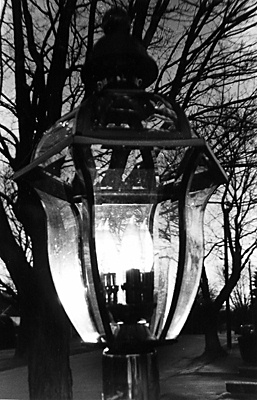All Nonfiction
- Bullying
- Books
- Academic
- Author Interviews
- Celebrity interviews
- College Articles
- College Essays
- Educator of the Year
- Heroes
- Interviews
- Memoir
- Personal Experience
- Sports
- Travel & Culture
All Opinions
- Bullying
- Current Events / Politics
- Discrimination
- Drugs / Alcohol / Smoking
- Entertainment / Celebrities
- Environment
- Love / Relationships
- Movies / Music / TV
- Pop Culture / Trends
- School / College
- Social Issues / Civics
- Spirituality / Religion
- Sports / Hobbies
All Hot Topics
- Bullying
- Community Service
- Environment
- Health
- Letters to the Editor
- Pride & Prejudice
- What Matters
- Back
Summer Guide
- Program Links
- Program Reviews
- Back
College Guide
- College Links
- College Reviews
- College Essays
- College Articles
- Back
Coming Home MAG
The window of the bus was smudged with the grit and grime ofthe city. As Stevie peered out, she reflected on how far fromhome she was, physically as well as mentally. Sorrow flashedover her, the kind she had been dismissing as a sillychildhood attachment to the home she had grown up in. Whispersof nostalgia ran through her head, and she allowed herself forthe first time in months to dream of the home she had leftbehind.
Signs flashed under the street lights, asshadows ran over Stevie's face. The bus held only a fewpeople, their expressions tired and full of longing. As shepeered at the faces in the shadows, she recognized theiremotions as reflections of her own. Stevie pulled her knees upto her chest and put her head down, falling into a restlesssleep.
In her dreams, Stevie was torn between wantingto be home curled up in her bed of 17 years, and the naggingnotion that she really should be old enough to overcomehomesickness. Through the fog, she saw her childhood in slowmotion. The happy memories were reflected in bursts of brightcolor, seldom interrupting her grim recollections of thesorrowful times. Stevie hated many things about herself, andit seemed that coming home reminded her of all her worsttraits. This was the trip she had been dreading and avoidingfor what seemed like a long, long time.
As the sunbegan to peek through the grimy windows, Stevie stirred andfound herself peering into two large, dark eyes in the aislenext to her. She could see her reflection in them, and vaguelyrecalled that she had not combed her hair in a while. Thechild she was looking at could be no more than seven. Thelittle girl stared at Stevie with interest, then jerked hergaze away guiltily. She spotted her mother three rows up, andstruggled to sit next to her. The innocence of it alloverwhelmed Stevie.
The hissing brakes a few hourslater signaled it was time to get up, stretch legs and stepoff into the sunshine. The light blinded Stevie as shesquinted around the bus station, annoyed that the weather soseverely contrasted with her confused emotions. She halfexpected someone to be there to greet her, but it was the sameas always.
As she looked a second time, Stevierecognized the station: it was where she had started. It wasstrange and familiar at the same time. She had left, monthsearlier, a different person. Her hair was now a dozen shadeslighter, and the small butterfly tattoo on her left ankle wassure to be a crowd-pleaser at the family dinner. The station,however, hadn't changed. Stevie grabbed her piece of luggage,and tried to hail a taxi.
Coming home troubled Stevie.She had managed to escape the unstable life, all she hadknown, to a college across the country. She had fled, not infear, but in sorrow and fatigue. The sorrow was mourning achildhood of isolation. Her fatigue was entirely different; itwas the fatigue of closing the world out, of drawing peopleclose and then pushing them away. A sick feeling spreadthrough her, of comfort and familiarity, as she slid into herworld of quiet isolation.
The cab pulled into thedriveway of her childhood; a man's shadow was outlined throughthe lace curtains in the living room. Stevie pulled herselftogether and adjusted her bag on her shoulder, trudging up thewalk with a sense of self-worth that was uncomfortable as wellas filling at the same time. She wouldn't let them hurt herthis time. Stevie shook her head with resolve and rang thedoorbell.

Similar Articles
JOIN THE DISCUSSION
This article has 2 comments.
Wow, this is amazing! The imagery is stunning and the story is captured in this page-long piece of fiction.
My favorite part? Your FEMALE protagonist is named Stevie. I am a female. Named Stevie :)

0 articles 0 photos 12292 comments